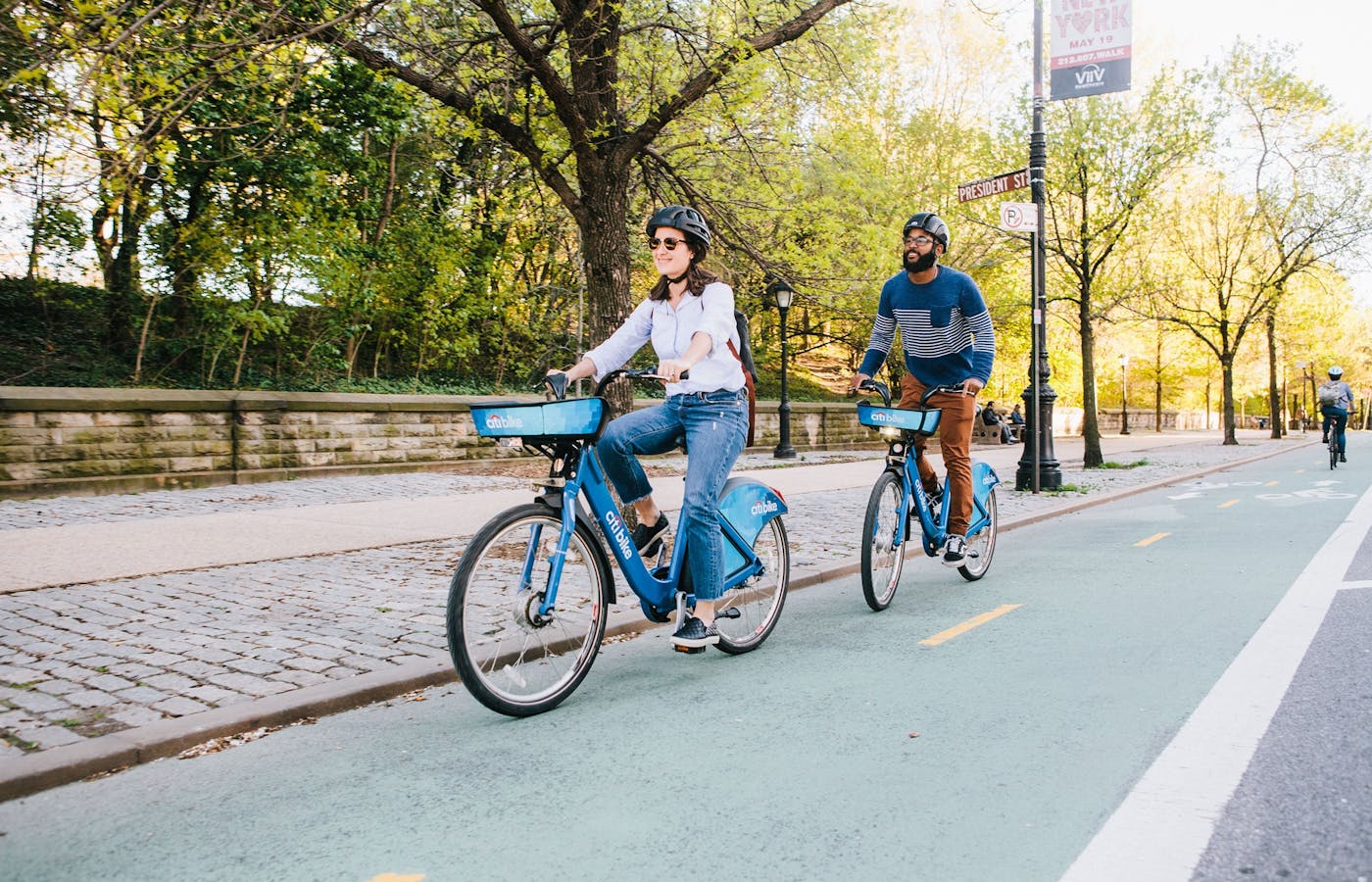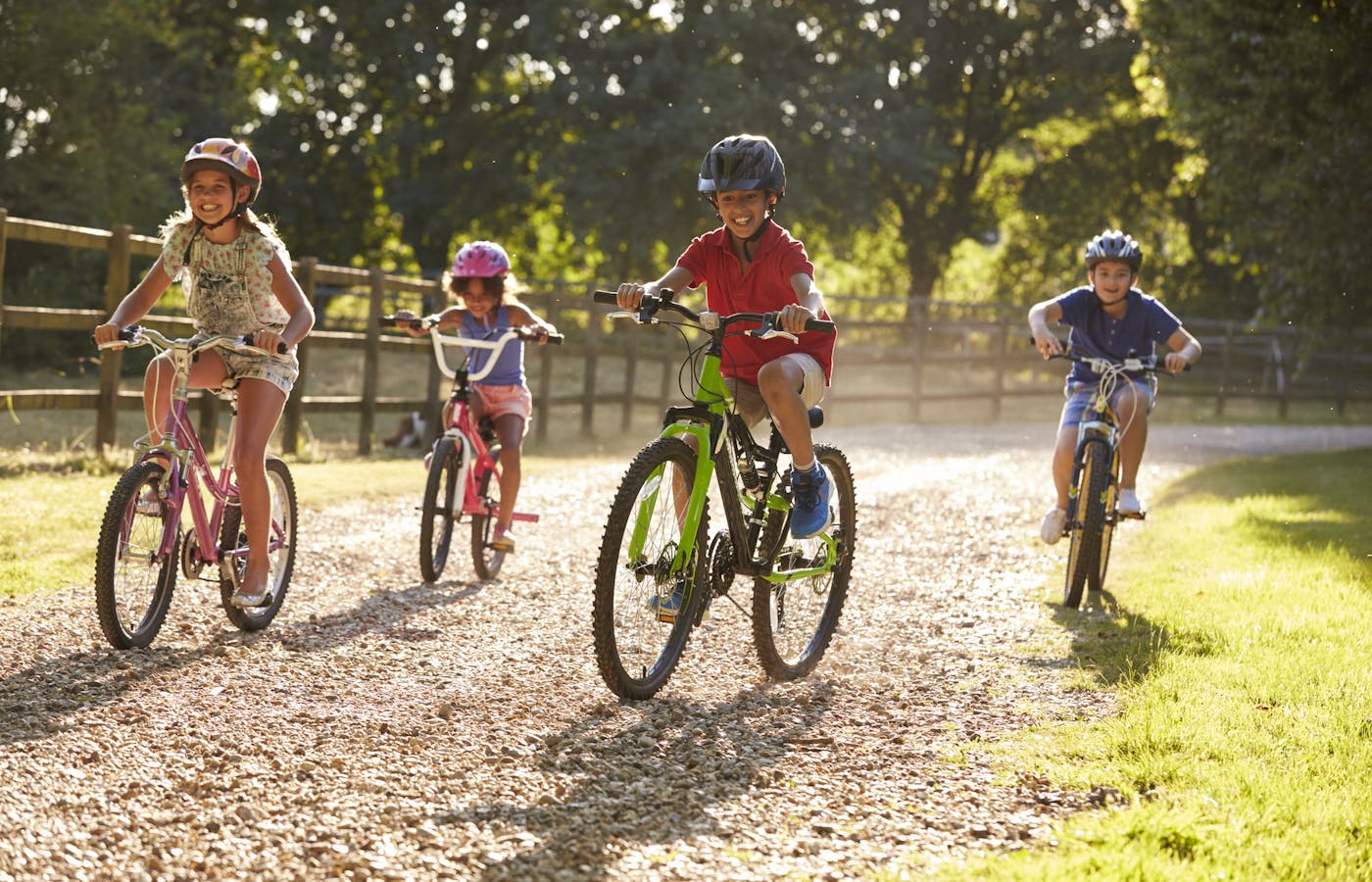A version of this post originally appeared on PeopleForBikes and is republished with permission. It is part three of a three-article series; read part one here, and part two here.
11. E-bike subsidies work
While the federal government currently offers a federal tax credit for electric cars of up to $7,500, nothing similar exists for people buying an electric bike. With a lack of federal initiative, more and more states, counties, and cities across the country are taking matters into their own hands, creating e-bike incentive programs that are as varied in substance as they are geographically. While many programs are relatively new, the data is compelling.
Launched in the spring of 2022, Denver’s incredibly popular e-bike incentive program has led to some notable results, including $1 million in cumulative annual savings for the city. Researchers also calculated that the program avoided considerable amounts of greenhouse gas emissions, with some 71 percent of survey respondents claiming to use their gas-powered vehicles less often (those surveyed rode their e-bikes an average of 26 miles per week, replacing 3.4 round trip vehicle trips). Importantly, 29 percent of Denver e-bike redeemers who completed the program survey indicated they were also new to riding.

12. Shared micromobility is a good investment for cities
Bike and scooter share, known collectively as shared micromobility, is a good investment for cities. When shared micromobility is done equitably, it can help alleviate transportation insecurity and lead to better public health, environmental, and economic outcomes. Unfortunately, not nearly enough municipalities treat shared micromobility as an integral part of their transit landscape or fund it accordingly. That’s a huge miss.
A 2021 study found that bike share systems are a boon for public health, saving the U.S. healthcare system more than $36 million a year on average. Another research paper from that same year looked at New York’s Citi Bike and found that the system — the largest in the U.S. — is a net win for the climate. In Britain, a more recent study found that if one-fifth of car trips were taken by shared electric bikes or scooters, the result would be a more than $1.2 billion boost to the economy.
13. Bike laws are often inequitably enforced
On paper, many bicycle laws — such as those that require people to wear helmets, use bike lights, obtain a bike license or register their bikes — seem like a great idea. After all, helmets can protect our heads in the case of a crash, lights help bikers see and be seen, bike licenses can raise money for infrastructure, and bike registrations safeguard people against theft. At least that’s all true in theory. In reality, these laws are virtually unknown and rarely enforced. When they do get enforced, it’s usually to the detriment of Black, Indigenous, or people of color (BIPOC) or those experiencing homelessness.
A report from Equitable Cities outlines how prevalent these transportation laws are in the U.S. In addition to the obvious trauma that can make even the most essential trip to the grocery store a fraught affair, these policies limit mobility, opportunity, and access for BIPOC. They also have implications beyond mobility, contributing to adverse social, political, economic, environmental, and health outcomes. There’s also evidence that repealing laws doesn’t have negative effects: A 2023 study also found that after a helmet law was abolished in Seattle, helmet use actually increased.

14. Bicycling is really good for our youth
There are obvious reasons why any bike advocate would want to see more kids on bikes, including the fact that youth are our cities’ future riders and the next generation of community leaders. What’s less often talked about are the holistic health benefits bicycling offers our children. Aside from the obvious physical benefits of increased activity, youths who engage in regular physical activity report fewer depression and anxiety symptoms, have higher self-esteem, and also perform better academically than kids who are inactive. Additionally, Outride’s “Riding for Friends, Fun, and Fitness” report highlights how youth who ride regularly report higher levels of mental well-being and spend fewer hours in front of screens.
15. Messaging is key
Don’t always focus on bikes — in fact, if you can manage it, your messaging should focus on the benefits to everyone rather than just people riding bikes. This may seem antithetical to the goal of getting more people riding but research bears out this messaging strategy. Make a point to talk about how bicycling infrastructure improves the lives of all, whether or not people choose to bike, by increasing opportunity, relieving congestion, and growing the economy through recreation improvements.
When discussing bicycle infrastructure, dwell less on the cyclists and instead focus on how infrastructure can help make streets safer for everyone, benefit people’s health, and provide crucial transportation access to jobs and essential services. Your messaging around bikes should always focus on bringing people together and turning drivers into supporters.
As the leaders in the fight for building better communities, the responsibility for messaging falls on us. To win over diverse groups and achieve a bike-forward agenda, we need to shift the conversation.






